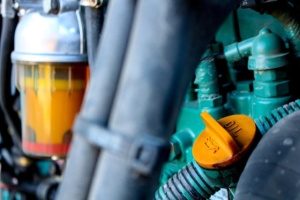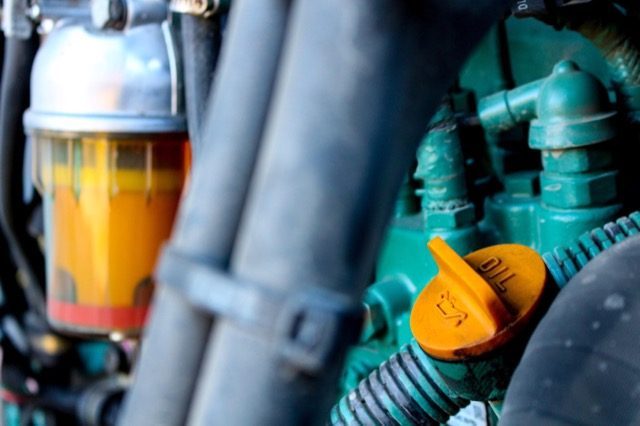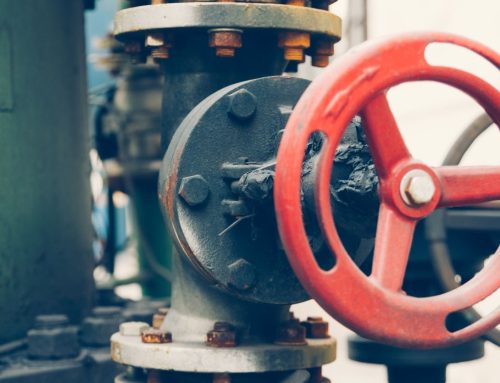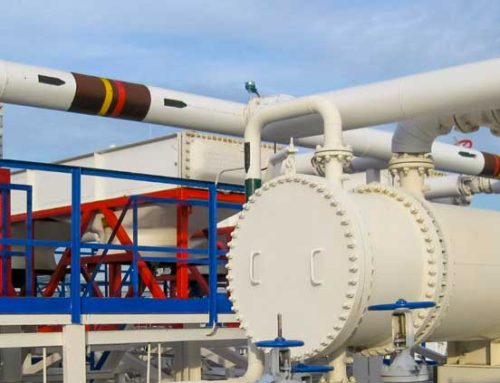If you’ve perused our site for just a few minutes, then you’ll already know that we here at Advanced Filtration deal with thousands of different types of products, filters, power generators, separators, water systems, filter vessels, media, bags, housings, and so much more. We work with many different industries, from chemical to power to metals and minig, and all kinds of products, from reverse osmosis membranes to compressed air and gas filters to cast iron threaded Y strainers. But in this article, we’re going to look at one specific type of product–that is, diesel fuel filtration.

Diesel is more than fuel, as it performs several support functions to keep an engine efficient. For instance, not only is diesel fuel an engine’s primary energy source, it also lubricates moving parts to reduce unwanted wear. In addition, diesel is crucial for cooling mechanisms in a diesel engine, by absorbing unwanted heat generated by the engine. Exposing diesel fuel to the right amount of air provides the correct amount of power, which is why filtration and proper maintenance is so crucial to keeping diesel engines working properly.
One reason for this is that diesel fuel collects contaminants during the process that affects the engine’s performance. Hence, keeping the fuel clean and free of impurities can help maintain a properly functioning fuel system. This is where a filter comes in. A diesel fuel filtration system ensures no dust, dirt, or debris enters the engine while keeping water out. These impurities can destroy a diesel engine system–which is why we’re going to spend some time talking about the benefits of diesel fuel filtration.
About Diesel Fuel Filtration
Dirt is one element that affects a diesel engine’s performance. There are abrasive contaminants everywhere in the environment, and as you are probably aware, they seem to want to get in where we don’t want them. For instance, small metal particles, paint residues, and fuel lubricants can contaminate the fuel in your engine. Similarly, water is a serious element that can affect the purity of stored diesel fuel. Water, air, and dust may enter the fuel tanks through vents and affect engine functioning.
A fuel filter is designed to remove the harmful impurities and moisture in the fuel system. It is an important part of an engine’s fuel system components, which is why many fuel systems contain primary and secondary filters located at the fuel tank.
The diesel fuel filters are some of the important parts of a diesel filtration system. They protect the engine, reduces wear and tear, and improves the diesel engine life. Keeping the filtration system running prevents damage to the injectors, which is why we recommend to our customers they use high-quality filters to ensure they do the job quickly and efficiently. Also, we recommend to all our customers that they replace their fuel filters (and all filters in their system, ideally) on time to maintain their performance.
Benefits of Diesel Fuel Filtration
Filters are the first line of defense against dirt and other contaminants. They stand between an efficient working engine and a faulty one. In most cases, abrasive particles can damage the engine components, thereby affecting their efficiency. For example, having these particles in fuel can lead to faulty starts and can increase fuel consumption.
The major role of fuel filtration is to clean the fuel and prevent damage to the engine. A fuel filter screens out contaminants to protect critical parts of the engine. It will filter out foreign particles such as debris and dust from the fuel. These contaminants might damage a fuel injector, forcing an expensive replacement.
A diesel fuel filtration system performs several roles, including protection of the fuel system component. They prevent corrosion of sensitive components caused by fuel contamination. Filtering the water in diesel fuel improves the engine performance and its efficiency. Since the fuel components cost more to repair, using filters helps reduce unnecessary maintenance costs.
Diesel Filters Are Improving and Getting Cleaner
Diesel fuel filters differ from regular fuel filters in shape and design. While fuel filters are typically shaped like a cartridge, the diesel fuel filter is typically shaped like a bowl, which allows easy water removal to prevent contact with moving parts.
As with all aspects of industrial filtration, the technology these days is allowing diesel fuel filters to improve and get better in shape and performance. For example, since they curve down, water collects in the bowl’s bottom to separate from the fuel. Using the valve at the bottom of the bowl drains water from the basin to remain with fuel. Also, a heater in the diesel’s structure fuel filter removes paraffin caused by low temperatures. This paraffin can clog the filter and affect filtration.
Paying attention to filtration is crucial to reducing diesel engine operation costs. Change the filters regularly while using the correct filter. Follow instructions when changing the filter to prevent contamination. There are instructions on removing and installing a fuel filter to prevent contamination.
All the fuel must pass through the filter before reaching the injection pump. Some filters have internal, replaceable elements inside the bowl. Most filters on the market today allow for fast change to prevent contamination, and as anyone in the field knows, the less onerous requirements for filtration maintenance, the better. It’s one of those things that needs to happen, but doesn’t always happen on time, unfortunately.
Efficiency Of A Fuel Filter
The diesel filtration system has an important role in straining out dirt and contaminants from engines. It helps improve the engine’s performance by ensuring more fuel flows into the engine. The filter must be sufficiently strong to handle the pressure pump without busting. Using a suitable filtration system is crucial in avoiding damage to the injector components.
The efficiency of a fuel filter depends on the manufacturer and the type of filter in use. A diesel engine’s fuel system uses primary and secondary filters. Primary filters remove up to 30 microns, while secondary filters remove up to 10 microns of dirt particles. On the engine, the primary filter is located between the tank on the supply pump, while the secondary filter is found between the supply pump and the injection pump.
Since diesel fuel systems are crucial parts of a diesel engine, using the right filtration system is paramount. A quality filter ensures that the debris doesn’t get into the engine while keeping water and dirt out.
Taking care of a diesel filtration system is crucial in maintaining a diesel motor. Maintenance entails running the fuel through a filter to remove contamination. The fuel filter keeps the contaminants while allowing the diesel fuel to pass through.
During filtration, the fuel moves through several films to clear dirt and other contaminants before reaching the engine. It helps avoid damage and clogging in the engine. However, the filter is most effective if it remains in good shape.
Proper diesel fuel filtration helps reduce the wear and tear between moving parts. The world outside an engine is dirty with plenty of dust and debris. Luckily, the right filtration strategy using correct filters will ensure the engine is efficient. Quality fuel filters are tested in a real engine and a real operating environment, and we at Advanced Filtration sell only the best products that we can vouch for.
How We Can Help
At the end of the day, diesel is just one component of many that make the world go around. Industry functions on so many different types of products, filters, and systems, that it’s important to have a partner like Advanced Filtration on your side when you’re ordering new parts, whether it’s for manufacturing, chemical plants, biotech, power generation, or anything else. Give us a call today at 732-901-6676 and we’ll answer your questions.







